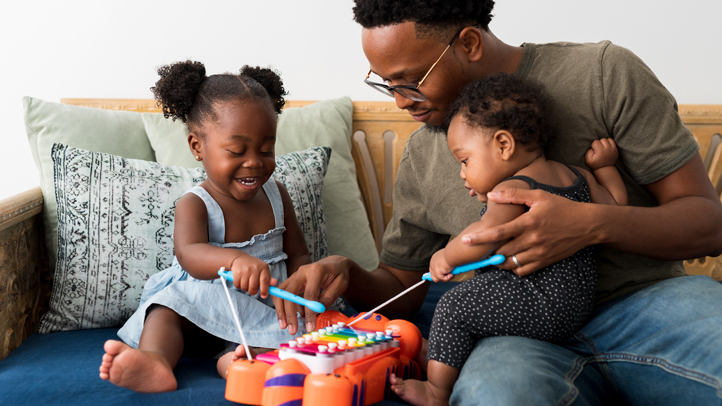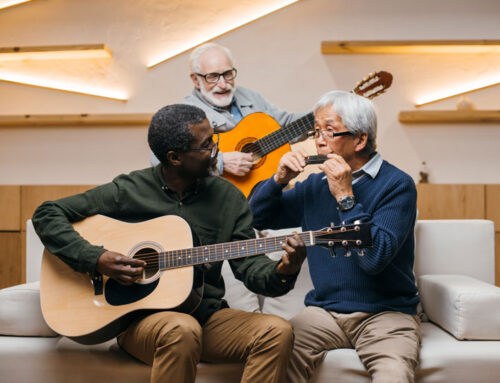
“MiMusic Notes” by Karine Pierson, Director of Education MiMusic Studio
As director of education at a busy music school providing in-person and online music lessons for families in beautiful, arts-friendly Northern Michigan, I hear a lot of people talk about their family history. “Grandpa played the fiddle,” “Grandma sang to me my whole life,” “My mom taught us piano and violin lessons.” The stories are endless, and I love hearing them.
One thing I’ve noticed is that when children from these families start violin lessons, piano lessons, or guitar lessons, they tend to excel quickly. This is no accident—it’s partly due to those musical genes and partly due to a supportive learning environment at home.
The Role of Nature and Nurture in Music Education
While some students seem to have a natural ability for music, their **success in music lessons—whether online or in-person—**depends on more than just genetics. A student’s progress in violin, piano, guitar, or voice lessons is greatly influenced by their home environment.
• Do they have a structured practice routine?
• Are parents and family members supportive of their learning?
• Do they have access to high-quality online or in-person music instruction?
If the answer is yes, the student is much more likely to thrive. This is where both nature and nurture come into play.
A Long Tradition of Musical Families
Historically, people often followed their parents’ professions. If your father was a blacksmith, you likely became one too. The same is true for music education—many famous composers, such as Mozart, Bach, and Beethoven, came from musical families.
Even today, I see great-grandchildren of musicians displaying a natural talent for violin, piano, and voice. These students often take to their chosen musical instruments with ease, likely benefiting from generations of musical exposure.
A Personal Connection to Musical Genes
Although no specific “musical gene” has been discovered, there is plenty of evidence of musical inheritance—even in my own family.
• My father was a professional jazz bassist.
• My grandparents met in a big band.
• My great-grandparents were also instrumentalists and singers.
With such a strong musical background, it’s no surprise that I ended up with a career in music education and now help others discover their musical talents through private lessons, group classes, and online instruction.
Is Musical Talent Always Inherited?
Not necessarily! Even if you don’t come from a musical family, you can still become a musician. Many students think they are “tone deaf” or lack natural ability, but with consistent online music lessons, private instruction, and practice, they can develop their skills.
I have personally worked with students who struggled at first but eventually learned to match pitches and play instruments confidently. The key is tenacity, patience, and high-quality instruction from experienced music teachers.
Creating a Musical Family—Even If You’re Not a Musician
You don’t have to be a musician to foster a love of music in your family. Whether you enroll your child in piano lessons, guitar lessons, violin lessons, or even online voice coaching, there are many ways to support their growth.
• Play music in the background at home to create an immersive musical environment.
• Keep instruments accessible—even simple ones like ukuleles or rhythm instruments.
• Sing songs together as a family to make music a natural part of daily life.
At MiMusic.Education, we believe that music is for everyone. Whether you’re exploring in-person music lessons in Northern Michigan or looking for online music lessons to fit a busy schedule, we’re here to help families of all backgrounds create their own musical traditions.


